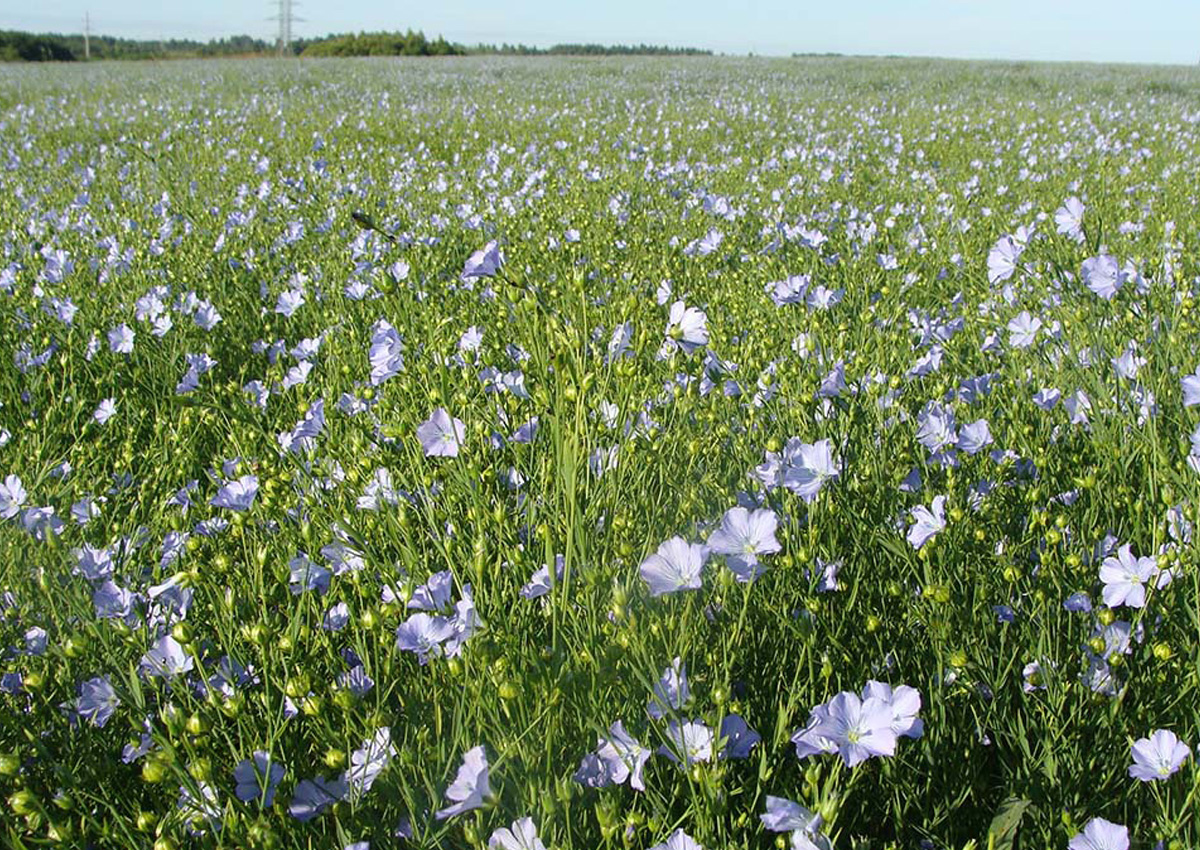
Russian Biologists Sequence Fusarium Genome
August 26, 2020| |
Biologists from Peter the Great St. Petersburg Polytechnic University (SPbPU), St. Petersburg State University, and Federal Centre for Bast Fiber Crops teamed up to sequence and assemble the genome of Fusarium oxysporum f.sp. lini, a highly destructive fungal parasite causing Fusarium wilt.
Fusarium wilt is a disease caused by various species of Fusarium fungi, and botanists and plant scientists are aware of approximately 120 species of the parasite capable of infecting a wide spectrum of crops, such as tomatoes, cucumbers, melons, cabbages, peas, corn, barley, wheat, and many other plants. The study focused on the characterization of F. oxysporum f.sp. lini which infects flax, a major source of textile fiber, seed, and flaxseed (linseed) oil in Russia.
The research team found that the parasite's genome consists of two components; the stable one, which is almost identical in different Fusariums, and the variable part which is mainly responsible for the adaptation of the fungus to various plants. The release of the complete genome sequence contributes to the global efforts aimed at eliminating plant disease outbreaks by aiding in the engineering of new resistant crop varieties.
For more details, read the article on the SPbPU website.
| |
You might also like:
- International Research Team Discovers Gene to Develop Fusarium Head Blight Resistant Wheat
- ARS Scientists Identify Key Gene in Wheat to Help Resist Fusarium Head Blight
- Researchers Find Potential Fusarium Wilt Resistance Gene in Tomato
Biotech Updates is a weekly newsletter of ISAAA, a not-for-profit organization. It is distributed for free to over 22,000 subscribers worldwide to inform them about the key developments in biosciences, especially in biotechnology. Your support will help us in our mission to feed the world with knowledge. You can help by donating as little as $10.
-
See more articles:
-
News from Around the World
- ISAAA Webinars: Animal Biotechnology, The Next Frontier
- Florida Board Allows First GM Mosquito Trials in the US
- Wild Genes to Improve Nitrogen Fixation in Soybeans
- Filipino Regulators Learn from International Experts in Regulating Animal Biotech Products
- Russian Biologists Sequence Fusarium Genome
-
Research Highlights
- Research Shows Bt Cotton's Performance in Rainfed Areas
- Antagonistic Genes Modify Rice Plant Growth
-
Plant
- Root Angle Modifications Lead to Improved Rice Yields in Saline Fields
- Scientists Re-evaluate Rice Green Revolution Gene
-
Health
- MassBiologics Identifies Antibodies that may Protect Against COVID-19
- Hospital in Israel Starts Trials for the Fastest COVID-19 Test
- Scientists Discover Mutation Making SARS-CoV-2 Milder
-
Read the latest: - Biotech Updates (December 17, 2025)
- Gene Editing Supplement (December 17, 2025)
- Gene Drive Supplement (February 22, 2023)
-
Subscribe to BU: - Share
- Tweet

